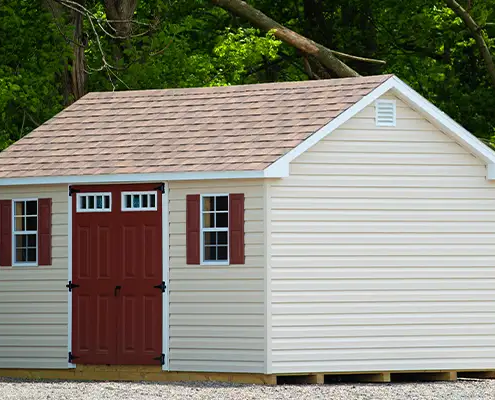How to Plan for a Cross Country Move – Tips, Tricks, & a Fool-Proof Checklist
Moving your life’s-worth of belongings clear across the country is no easy feat. Proper planning and preparation can be the difference between a nightmare and a (relatively) stress-free move.
Whether you decide to hire cross country movers or move by yourself, here is everything you need to know about planning for a worry-free move.
Contents:
Tips for planning your cross country move
Cross country moving preparation checklist
- 3 months out – start downsizing & decluttering
- 2 months out – book your movers, truck rental, or moving help
- 1 month out – begin packing storage & rarely used items
- 2 weeks out – keep packing & do these 5 things
- 1 week out – keep packing, organizing, & planning
- 1 day out – finalize packing & stock the fridge
Tips for planning your cross country move
Choose the right moving service
Your very first step is to decide how you are going to move your stuff. There are 4 ways to move cross country:
- Rent a truck or trailer and move yourself
- Rent a moving container
- Ship your stuff via freight
- Hire movers
We suggest do-it-yourself truck rental if you are on a budget or the size and scope of your move isn’t too large.
Moving container rental is a good option if you require storage or don’t want to drive the moving truck.
Freight is a unique and cost-effective option that involves palletizing and shipping your items with a freight carrier.
Last, hiring movers will be your most expensive route but will offer the most time savings and peace of mind.
Carefully weigh the pros and cons of each moving option and decide on your best route based on your budget, physical ability, and time frame.
Start early
Whether you’re moving from Pompano Beach clear over to Seattle, or just a few states away, the sooner you start preparing for your cross country move, the better. Ideally 3 months in advance if possible.
Simply put, the earlier you start chipping away at your move (regardless of whether you hire movers or do it yourself), the more stress-free your move will be.
Double your expectations
One certainty in moving is it always ends up being more work than expected. You always have more stuff, it always costs more money, and it always takes longer.
To make sure you don’t underestimate the big task, double your expectations for how much work and planning it will require. Triple the amount of stuff you think you have, triple the number of boxes you think you will need, triple the expected time and labor investment, and so-on.
By overestimating your move you will ensure you are well-prepared and significantly reduce the stress associated with it.
Lighten the load
The less stuff that you have to move, the cheaper and easier your move will be. Consider downsizing by getting rid of old or rarely used items. Here are some ways to get rid of stuff:
- Sell your stuff – Hold a garage sale or sell your stuff online via Facebook Marketplace, Craigslist, or NextDoor.
- Donate your stuff – Some popular donation spots include Goodwill and Salvation Army.
- Trash your stuff – Some stuff the donation spots won’t take. If that’s the case, put it in the dump instead of the moving truck.
Box it up
The purpose of packing stuff in boxes is to reduce the number of trips to and from the moving truck. If you put in the work up front by boxing everything, it will significantly reduce the headache come moving day.
Boxes also load much more nicely onto the moving truck than a bunch of loose random items, saving you time and space.
If you are moving yourself, be sure to buy or rent a dolly too – it will make moving your boxes 10x easier.
Cross country moving preparation checklist
3 months out – start downsizing & decluttering
Begin taking inventory of your belongings and figuring out what you can do without.
A good rule of thumb is if it hasn’t been used in a year, you should consider getting rid of it. Of course, there are exceptions to this rule, but the more you can get rid of the easier your long distance move will be.
Starting early lets you chip away at it slowly. If your move is sooner than 3 months out, no sweat. Just start as soon as you can.
2 months out – book your movers, truck rental, or moving help
Booking your movers in advance ensures that you can get it on their calendar. If you wait for too long, they may be booked up, especially during peak season.
The same thing goes with truck rental.
If moving yourself, get a couple friends or family members to block off their calendar for your big day. Letting them know well in advance not only courteous, it gives them less room for an excuse to miss your big day!
1 month out – begin packing storage & rarely used items
It is time to start packing things that you will not be needing any time soon. Spare bedding, Christmas decorations, etc. The storage closet is a great place to start.
This is also a great opportunity to continue getting rid of stuff!
2 weeks out – keep packing & do these 5 things
Continue packing for your move, moving over to some more frequently used belongings. Be sure to keep essential items unpacked and leave boxes open in case you end up needing items in them.
Also, here are 5 random things that you need to do about 2 weeks prior to your move:
Set up mail forwarding
Switch out utilities, cable, and internet.
Start using up your food
Book a sitter for your kids
Get the right tools & equipment
1 week out – keep packing, organizing, & planning
The big day is getting close. If you have followed the steps above, you shouldn’t be stressing. 1 week out you want to finish up packing and make sure you label all of the boxes. Also make sure all the items from the previous steps are completed.
1 day out – finalize packing & stock the fridge
On the day before your move, you should be pretty well-prepared if you’ve followed our checklist.
Tape up that last moving box and make sure they are all labelled in detail. Pack a personal suitcase with the stuff you can’t do without over the next couple of days – medication, phone chargers, toiletries, etc.
After you finalize packing, re-read the full checklist and see if there is anything you forgot to do.
Last, the day before your move you want to make sure you’re set up to take care of your movers or moving help. Stock the fridge with waters or gatorades, take out some cash to tip your movers with, and do one last walkthrough to make sure you are 100% good to go.
The bottom line
Moving is a lot of time, work, and money – and if you don’t prepare properly, it can also be a major headache. Long distance moves are even more complex than in-town ones.
Here are the 3 key takeaways for a stress-free move:
- Start packing & organizing early, as early as 3 months out.
- Never underestimate the amount of work associated with your move. To be safe, double your expectations.
- Use the proper tools & equipment to simplify your move.
Follow these steps and you’ll be well on your way to a pain-free move.






